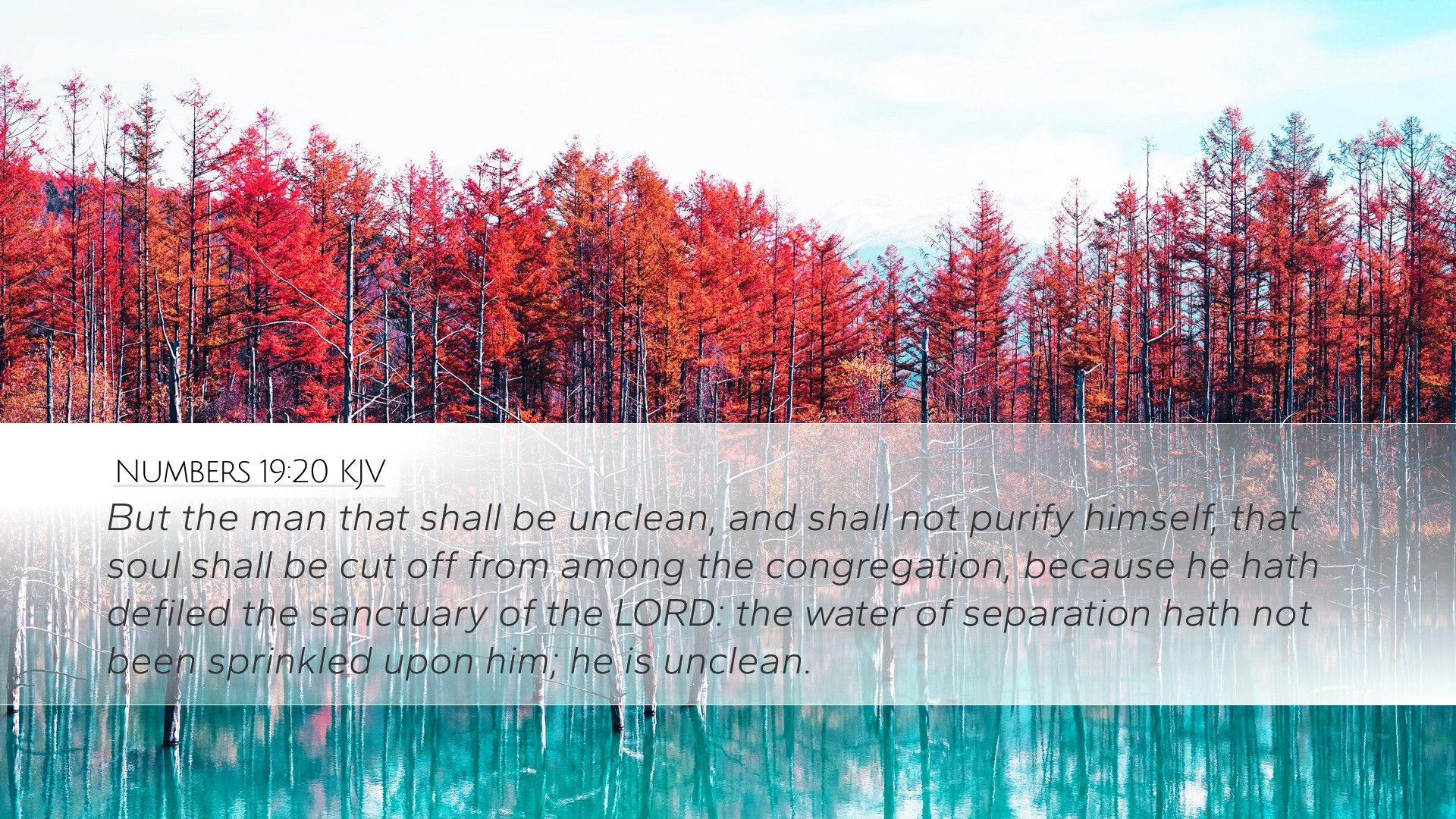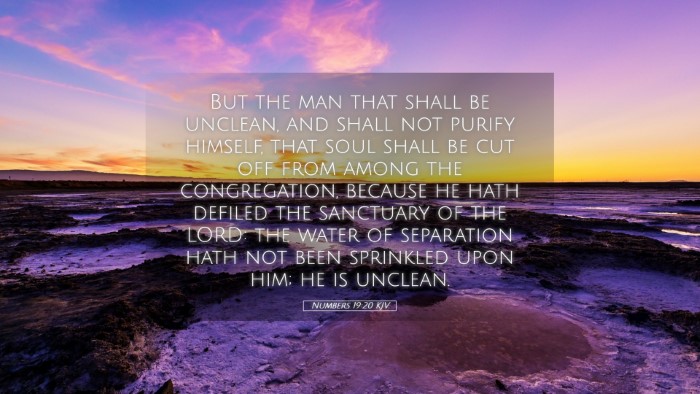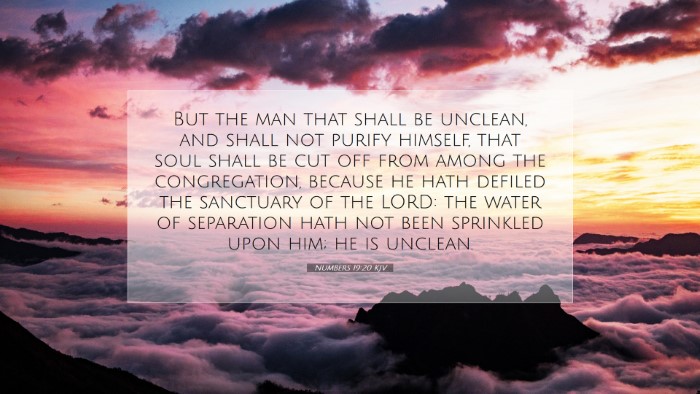Bible Commentary on Numbers 19:20
Verse: Numbers 19:20 - "But the man that is unclean, and shall not purify himself, that soul shall be cut off from among the congregation, because he hath defiled the sanctuary of the Lord: the water of separation hath not been sprinkled upon him; he is unclean."
Introduction
The regulations surrounding purity and defilement in the book of Numbers are vital for understanding the holiness of God and the seriousness with which He regards the covenant community. Numbers 19:20 serves as a significant directive regarding those who fail to comply with the prescribed purification rituals following contact with death.
Contextual Background
This verse is part of the larger scriptural framework outlining the laws concerning the purification from contact with the dead, a critical issue in the cultural and religious context of Israel. The rituals described in Numbers 19 serve to illustrate the method through which the people of God maintain their holiness and remain in communion with Him.
Key Themes
- Separation and Cleansing: The concept of being "unclean" is closely related to the spiritual state of an individual in relation to God's holiness.
- The Sanctuary's Sanctity: Defiling the sanctuary is a serious offense as it undermines the foundational principles of God's presence among His people.
- Community Responsibility: The consequences of personal impurity affect the entire congregation, emphasizing the communal nature of holiness.
Commentary Insights
Matthew Henry's Commentary
Matthew Henry emphasizes the pivotal nature of purity, warning that neglecting purification equates to contempt for God's commands. He states that uncleanness rendered an individual unable to draw near to God, highlighting that such negligence would lead to being "cut off" spiritually and physically from the community. Henry asserts that the reasons for these strict regulations are deeply rooted in the nature of God as holy, necessitating that His people must also be holy.
Albert Barnes' Notes
Albert Barnes expounds upon the idea of being "cut off." He interprets this as a spiritual separation from the community and God. Barnes notes that the water of separation mentioned represents the cleansing power that can restore an individual’s standing within the congregation, but failing to comply with these commands means embracing a state of alienation. He contextualizes this by linking it to the nature of transgression against divine laws, where ignorance of the law does not exempt one from the repercussions of their actions.
Adam Clarke's Commentary
Adam Clarke adds to the discussion by elucidating that the phrase "he is unclean" denotes a perpetual state of impurity unless an individual seeks restoration through the prescribed means. Clarke points out the implications of being cut off from the congregation, which underscores the gravity of the crime: an affront against the holiness of God. Clarke underscores the importance of understanding that the process of purification was not merely ritualistic but also served as a profound reminder of one’s relationship with God and the corpses that stood between life and ritualistic purity.
Theological Implications
This verse compels readers to grasp the significance of holiness and purity within a theological context. It challenges believers to reflect on their own lives and the importance of maintaining a relationship with God that is free from sin and defilement. The underlying message is that the choice to remain unclean has profound spiritual consequences, reminding the community of Israel—and all believers—that their actions have repercussions not only for themselves but also for their community.
Application for Today
For today’s church, Numbers 19:20 serves as a reminder of the seriousness of sin and defilement in the life of a believer. Pastors, students, and theologians can draw parallels between ancient laws of purification and the Christian understanding of sin and redemption. The sacrificial system, fulfilled in Christ, allows believers to seek forgiveness and restoration, emphasizing God's willingness to cleanse us from all unrighteousness when we repent and believe.
Conclusion
In conclusion, Numbers 19:20 presents a profound lesson on the necessity of spiritual cleanliness and adherence to God's laws. The combined insights from Matthew Henry, Albert Barnes, and Adam Clarke encourage a comprehensive understanding of the significance of these regulations and their applicability to the lives of believers today. God's desire is for His people to maintain purity and holiness, which brings them closer to Him and fosters a healthy, spiritually vibrant community.


